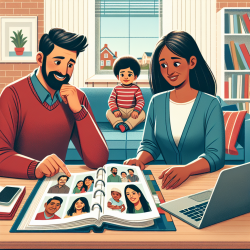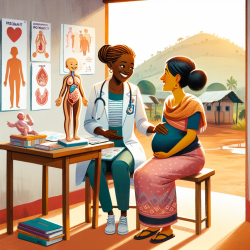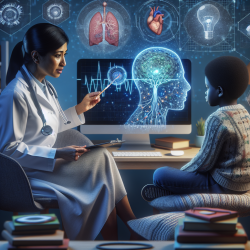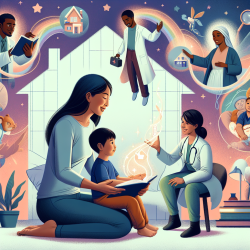The COVID-19 pandemic has brought many challenges to the forefront of healthcare, one of which is understanding the dynamics of vaccine uptake. Recent research on vaccination homophily in ego contact networks offers valuable insights that practitioners can use to enhance their skills and improve patient outcomes.
What is Vaccine Homophily?
Vaccine homophily refers to the tendency of individuals within a social network to share similar vaccination statuses. This phenomenon was notably observed during the COVID-19 pandemic, where both vaccinated and unvaccinated individuals tended to cluster within their respective groups. This clustering can significantly impact public health efforts, particularly in achieving herd immunity.
The Role of Social Networks
The study conducted in Hungary utilized a contact diary approach to explore how social networks influence vaccination decisions. It revealed that the perceived vaccination rate within an individual's social network was a powerful predictor of their own vaccine uptake. This insight underscores the importance of considering social dynamics when addressing vaccine hesitancy.
Key Findings
- Clustering Effect: Strong clustering was observed among both vaccinated and unvaccinated groups, with close relationships like family and friends playing a significant role.
- Predictive Power: The vaccination rate within an individual's network was the strongest predictor of their vaccination decision.
- Implications for Herd Immunity: The clustering of unvaccinated individuals poses a challenge in reaching herd immunity thresholds.
Applying These Insights in Practice
Practitioners can leverage these findings by incorporating social network analysis into their practice. Understanding the social dynamics that influence health behaviors can lead to more effective interventions. Here are some strategies:
- Create Community-Centric Programs: Tailor public health messaging and interventions to specific communities based on their unique social dynamics.
- Enhance Patient Communication: Engage patients in discussions about their social circles and how they might influence health decisions.
- Cultivate Trust: Build trust within communities by addressing specific concerns and providing accurate information through trusted community figures.
The Need for Further Research
This study highlights the importance of understanding social influences on health behaviors. However, more research is needed to explore the underlying causes of vaccination homophily and its implications across different cultural contexts. Practitioners are encouraged to stay informed about ongoing research in this area and consider participating in studies that further investigate these dynamics.
The insights gained from studying vaccine homophily can revolutionize how practitioners approach public health challenges. By understanding and leveraging social network dynamics, we can improve patient outcomes and contribute to more effective public health strategies.










